Last month, we talked about toxic stress and its effect on our children. This month, we’re going to talk more about how you can help your children cope with stress today so that it doesn’t have such a significant impact on their tomorrows.
FYI: I partnered with Stress Health, an initiative of the Center For Youth Wellness, in this sponsored series about the impact of toxic stress on our children’s lives both today and in the future. All opinions are my own.
What is Toxic Stress: A Refresher Course
For those who missed last month’s article (you can check it out here), or just need a refresher, let’s quickly talk about the definition of toxic stress. According to Stress Health, toxic stress is:
- Our body’s response to severe and/or lasting stress such as emotional or physical abuse, or neglect—without support from a caring and trusted adult.
- Powerful stress hormones overwhelm the child’s body and brain. This can result in lifelong issues with mental and physical health, as well as behavior.
While abuse and neglect are among the most devastating triggers of toxic stress, just about any adverse childhood experience (ACE) can trigger it in kids who aren’t receiving the right support from a trusted adult. Things like divorce, bullying, death of a loved one, and even just a really rough month at school can lead to toxic stress without intervention from a parent or another nurturing caregiver.
For some kids, like my son –and even me when I was younger — everyday stress can have a toxic effect. My son takes after me. He’s a people pleaser, and he’s really hard on himself. A low grade, a slight from a friend, or even just being over-tired can make him feel like the whole world is crashing in on him.
Toxic stress affected my life way beyond my childhood years. My ACEs wreaked havoc on my life and continue to do so. When I was little, our parents really didn’t understand anxiety disorder and the lasting impact of stress. I want a better future for my son, so I’ve spent a lot of time learning how to help him deal with stress.
10 Ways to Help Kids Cope with Stress
Let me start by saying that I am not a perfect parent. I’ve made mistakes, and I’ve learned from them. Just when you think you’ve got parenting down pat, your kids will go and change on you. We’re always learning and evolving as parents. Whether your kids are tots or teens, it’s never too late to introduce new coping mechanisms.
1. Let them express their emotions
Our kids burst into tears over something seemingly random or minor to us, and our first response is to snap, “What are you crying about?” Or we roll our eyes (even if it’s just mentally) and say, “For goodness sake, it’s not worth crying over!”
I won’t lie, I’ve done this to my son in the past. He’d get really upset about losing a video game, and I’d bark, “It’s not worth crying over. If you’re going to get upset about a game, you’re not going to be allowed to play.” I missed the point, though. He wasn’t crying because he didn’t win. He was frustrated because he put a lot of time into something and it didn’t pay off the way he thought it would. He didn’t know how else to deal with that emotion.
Here’s the thing: If they’re crying, then obviously it’s worth crying over to them. Instead of telling them to knock it off, try these 10 things to say to them. Some of them are written for young kids, but you can easily adjust the language for older children as well.
2. Actively listen
Actively listening means giving your child your full attention. It means putting away the phone, turning your body to your child, looking them in the eye, and opening your heart to what they are saying. It means not thinking about tonight’s dinner or your to-do list, either. Full attention means just that.
After all, family conversations are the training ground for empathy, according to MIT psychologist, Sherry Turkle.
3. Use words that show you understand
Your kids want to know that you aren’t just listening to them, but also hearing them. Choose words that show them you understand what they’re saying and where they are coming from. Words like “I hear you,” “I understand,” and “that must have made you feel _____” are a good start. Just make sure to follow up with deeper words of understanding.
For example, your son comes home and tells you that his teacher took away recess because he had to use the bathroom (this actually happened to my son). Say something like I understand how frustrating that has to be. It must feel so unfair. Let’s talk about how we can resolve this together can go a long way to showing your child that you hear what they are saying and empathize with them.
4. Brainstorm solutions together
For us “mama bear” types, it’s so tempting to just say “I’ll take care of this! They won’t get away it that!” Sometimes, that may be the best solution. If an adult is bullying or abusing a child, of course you should step in and take over. However, in many instances, it’s better to include your child in brainstorming the solution.
What if your teen comes home and tells you that they’re being pressured by their friends to drink alcohol at a party? Rather than just telling them they can’t go, come up with solutions together. Brainstorm ideas to help your teen stand up to peer pressure while saving face with his friends. Develop an “exit strategy” to help get him out of there if things get too intense. By working together, you’re not just solving the problem he has today, but giving your child the tools to solve problems tomorrow.
5. Know when to let it go
While some sources of stress definitely call for long conversations and follow-ups, sometimes our kids just want to vent to us and move on. For example, your child comes home and says “Mrs. T is SO unfair! She took away recess from the whole class just because one kid was talking in the hallways!”
Actively listen, then use your “understanding” words to show that you hear your child and get why that’s unfair. Then follow your child’s lead. If it seems like venting made him feel better, drop the conversation and divert his attention to something a little cheerier. Don’t harp on it if your child makes it clear that he’s ready to move on.
6. Help kids find their ideal way to relax
Help your kids find a relaxation technique that works best for them (which may not be the same thing that works for you). For example, I cannot meditate. It stresses me out. My therapist once told me that it’s not uncommon for people with anxiety disorder to feel more anxious during meditation. When I want to relax, I turn to mindless entertainment. You know, the TV shows that everyone calls “guilty pleasures,” or the books that will never make a list of great literature.
My son can meditate sometimes. He recently got into it and has been trying to schedule in “mindfulness times.” If it works for him, fantastic! If not, I don’t have any issues with him relaxing by watching funny YouTube videos, reading comic books, and so on.
7. Create “anchoring rituals”
Anchoring rituals are things that you do with your child regularly to further cement your bond. For younger kids, that can mean anything from reading bedtime stories together to playing fun games. For older kids, tailor it to their interests. For example, if your teen wants to learn to cook, you could make Sundays your “cook together” day.
When my son was little, especially after his dad left, we spent a lot of time playing video games together. Now that he’s older and prefers to play games with his friends, we find other ways to bond over common interests. We’re both crazy about a certain wizard series, so we re-watch the movies together at least once a year.
8. Let them quit!
Childhood is all about finding your passion, and that means trying out different things. Sometimes those things click, and our kids want to continue them. Other times, not so much. Jacob tried karate for about a year when he was five. He loved it…until he didn’t. When he started to fake stomach aches on karate night, I knew he was losing interest. When he outright cried because he didn’t want to go, we called it quits.
The same thing happened with Cub Scouts. He was really into it for about two years, then he just decided it wasn’t his thing anymore. Again, I let him quit. These activities were supposed to be a fun way to relieve stress, not create more of it.
Obviously, kids can’t quit school. But letting them quit the optional activities not only helps alleviate the stress that comes from doing something they don’t love, it gives them a much-needed sense of control over their own lives. For kids who have suffered from adverse childhood experiences, that small modicum of control means much more than I think we adults will ever understand.
9. Model good coping behavior
You’ve heard it a million times before, but I’ll say it again: do as you want your kids to do. They learn from watching you, and if you’re flying off the handle every time something doesn’t go your way, you can’t expect them to do otherwise.
Years ago, when Jake was little, I was really quick to anger. I found myself yelling more often than speaking. Not yelling at Jake, mind you, but just yelling in general. It wasn’t healthy for me or for him, so I decided that I had to make a change. I learned to let the little things go, to not get angry over things that don’t affect my life for more than a few minutes.
Here is an example: my dog Cooper was constantly knocking over the garbage can and raiding it. He had food insecurity issues from his own adverse puppyhood events, so I couldn’t really get mad at him. When he knocked over the garbage, I had two options:
- I could yell, scream, stamp my feet and throw a hissy fit while cleaning it up
- I could just clean it up.
Either way, the garbage was going to be on the floor until I did something about it. By just cleaning it up without grumbling and yelling, I was teaching my son that while life is full of little spills, they’re not the end of the world.
10. Know when to call a professional
Sometimes all our best efforts to help our kids cope with stress end up failing. It’s not your fault. It’s not your child’s fault. There are just some things that are too big for us to cure on our own. Knowing when to call a professional for help is just as important as knowing when to listen, when to let it go, and when to let them quit.
After Jake’s father and I split up, I took him to a fantastic therapist. He was only about four, and I was worried that he wouldn’t understand what was happening, and that it would negatively impact his entire life. Turns out, he was far more well-adjusted than I was; after a couple of visits, she ended up becoming my therapist instead. I needed the peace of mind that only a professional could give me.
All of these ways to help kids cope with stress have one major thing in common: you! You are your child’s best advocate, their greatest cheerleader, and their emotional rock. As long as your child has someone that they can trust (you), someone they know will be there for them no matter what, they can make it through just about anything.
Next month, we’re going to talk more in depth about adverse childhood experiences, which ones we can prevent, and what to do to lessen the impact of those we can’t prevent. In the meantime, take the ACE quiz to determine your child’s risk factors, and visit Stress Health to learn more about toxic stress. I’d also love to hear from you. How do you help your child cope with stress?

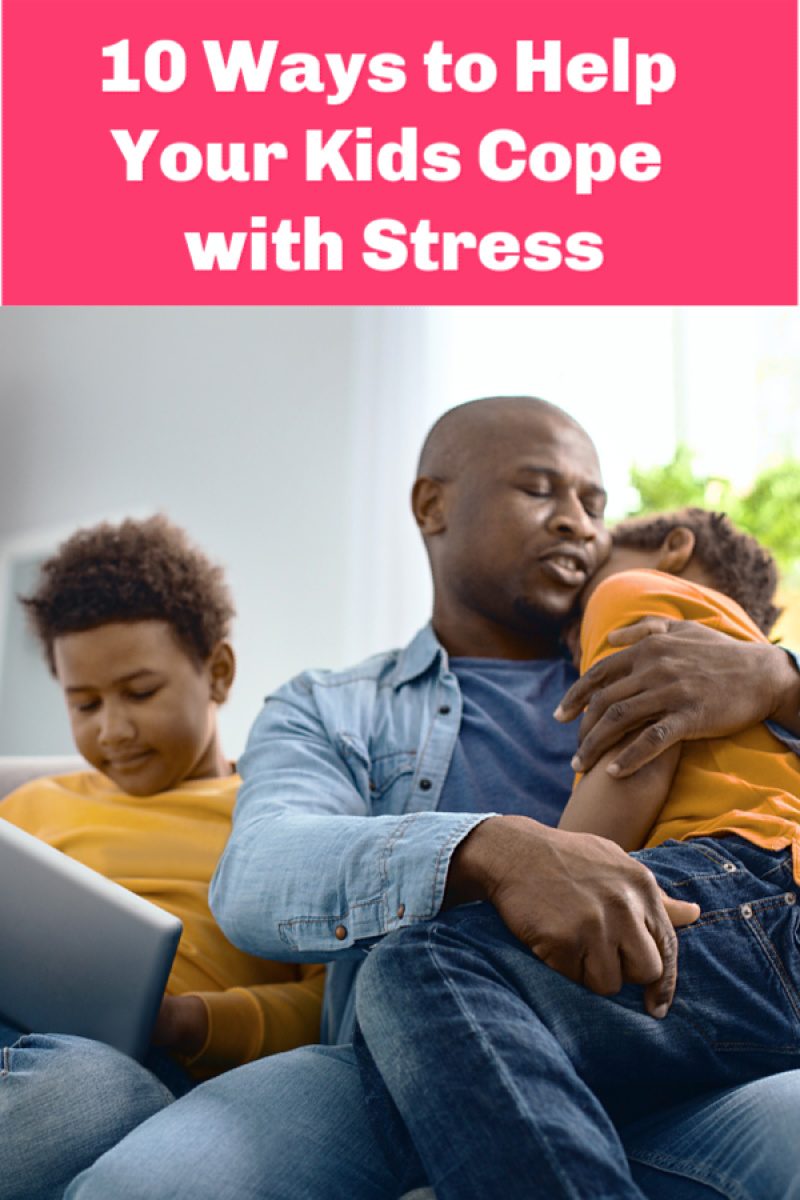

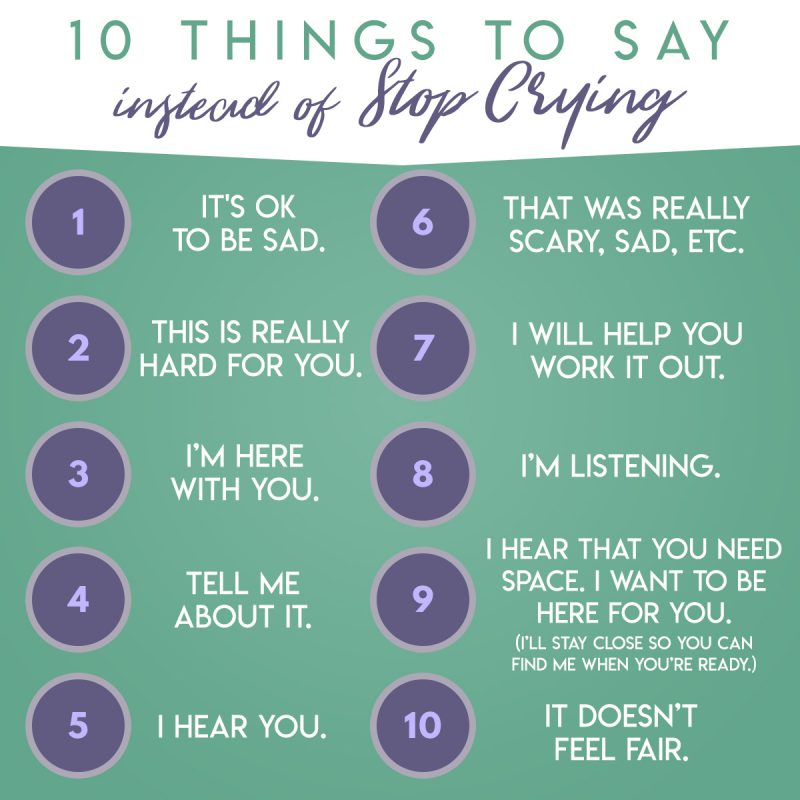
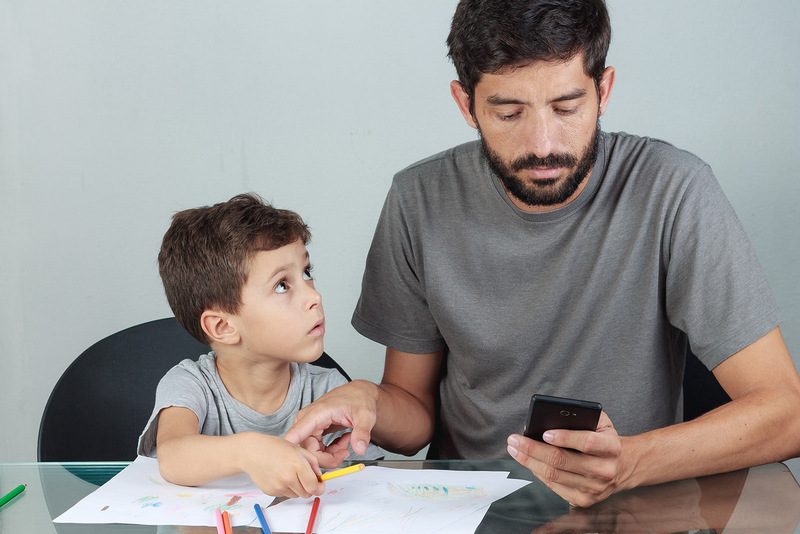


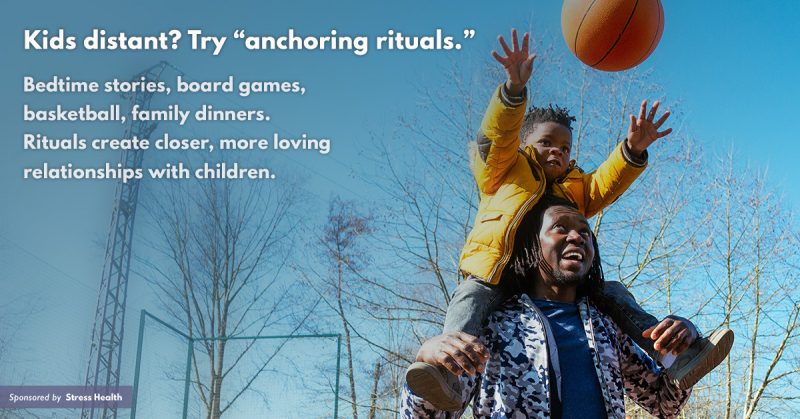
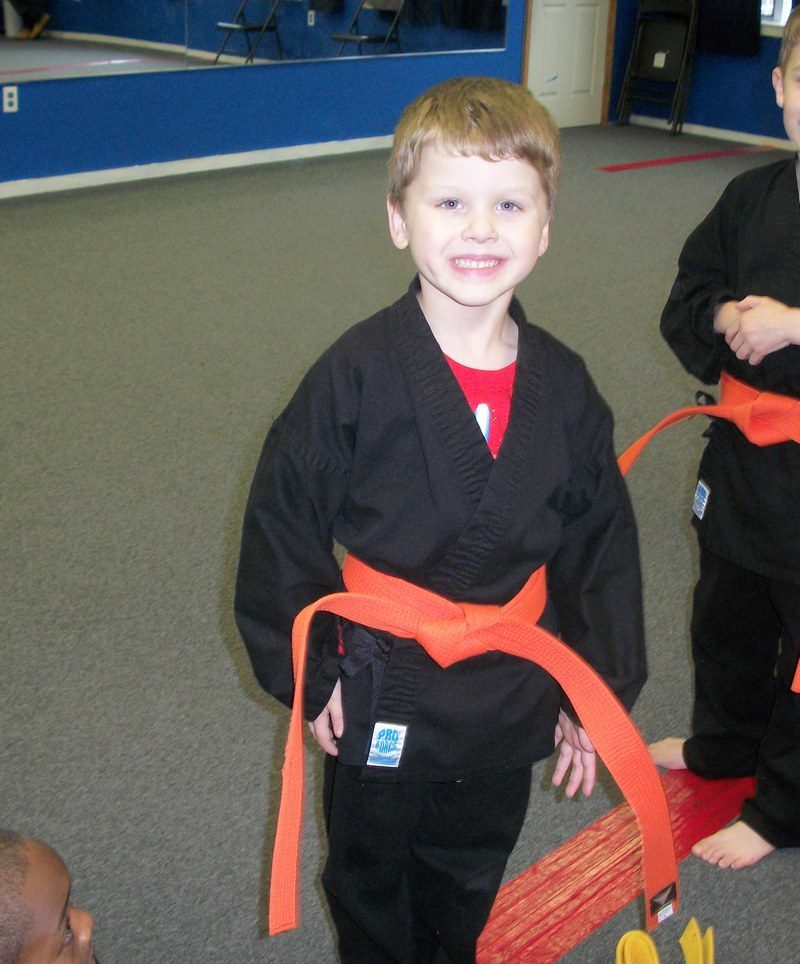



I used to suffer soooo badly from stress but my motto is EVERYTHING WILL WORK OUT IN THE END sooooo what’s the point?! PLUS – life is wayyyy too short to stress out about little things! I know when my husband and I are teaching our future kids about stress and such we will make sure they learn this!
These ar great tips. My daughter has gone through things thanks to bullies and I used a lot of these to help her through it.
Kids have stress just like adults. We call it bubble time. Sometimes they are just over loaded and need to be held or sometimes they want to be left alone. All is okay.
I do worry about stress and the toll it takes on my kids. They are older but I can see if they are not organized things can pile up and become overwhelming.
I’m always there for my kids when they get stressed. I usually try to make them feel better with movie nights or just talking things through.
Kids can get stressed out so easily especially when they are young and can’t express their emotions. We have chill out breaks where we just sit for and do a quiet activity and calm down.
I really enjoyed reading this post. These are some really helpful tips. It’s so important to take space and process what’s causing the tension.
I love the graphic. So helpful for those who are struggling with toxic stress. I saw a lot of it while a principal. So sad.
I’ve never heard of the term toxic stress, let alone know that my kids could be suffering from it. How scary. Thanks for the info!
These are great tips. I want to teach my kids how to be emotionally tough because there are some kids out there that are mean and I don’t want my kids to crumble at perceived slights. This parenting thing is hard.
These tips are really helpful, thank you! I have three kids and one of them is very emotional, he gets stressed easily. We have had to learn through trial and error how to meet his needs so he feels safe and relaxed.
Listening to them is key. Not shutting them down or yelling at them is so important. My kids have some stress (hard classes and competitive sports) and I try to just LISTEN
So important to have your kids open up about the stress they are experiencing through open discussion. They should not be dealing with it on their own and have parental or other external support to help them get through it.
This is a great post! Many people don’t realize how stress can effect our children. We must make sure to support our children in every way!
These are some great ways to help kids cope with toxic stress. Kids shouldn’t have to stress so much, it’s great to help them cope and reduce stress so they can enjoy childhood.
These are amazing tips and I’ve used a few for my son as well. He’s had some toxic stress in his life and I’ve worked with him for awhile to help rid him of it.
Good tips. This would help many parents.